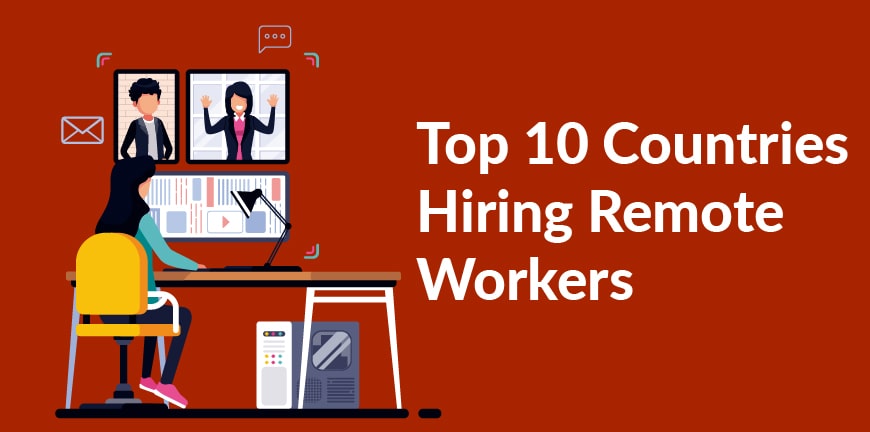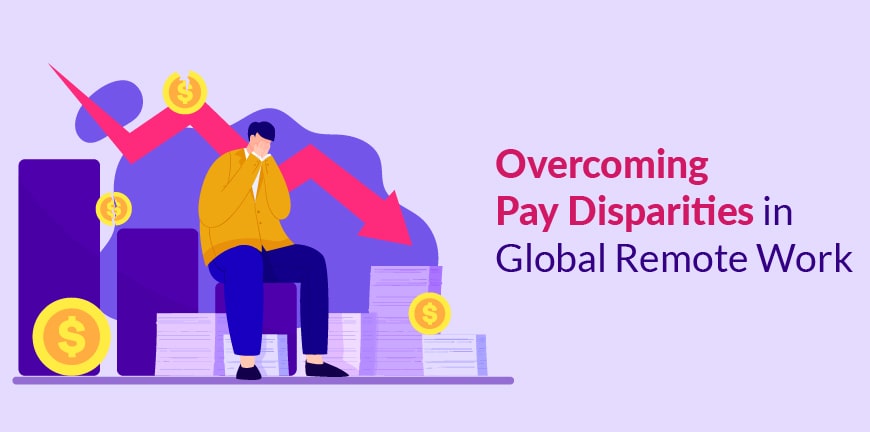
Top Countries Hiring Remote Workers
22/01/2024
Sustainable Careers on the Rise: In-Demand Jobs Shaping Europe’s Green Economy
30/01/2024Remote work is a ‘happening new work paradigm’ where there is not even remotely a dull moment. Your remote workers are armed with collaboration and communication tools that help them work well with their colleagues thousands of miles away across continents. They share their challenges, reconcile their differences to understand each other better and suggest ways to help each other improve their work throughput and derive more satisfaction from work.
Turbulences in the State of Remote Work
Changes in worker attitude, dynamics affecting the state of work in certain industries, the availability of the Internet and power, showstoppers at home and jobseeker expectations affect remote work, but they are not all that impacts it. And again, these were all factors external to the business. Internal factors such as manager’s bias, miscommunication and lack of incentives to work also contribute to problems in managing remote work.
Disparity is Demotivating
But if there is anything that can be discouraging in a big way, it is the disparities in global remote work. This is because though two remote workers may not meet in person, they would still exchange their thoughts with one another. If they find that the work is not paying them well enough, there would be an agreement on the company’s lack of investment in its employees. But if one finds that the other, a person in the same team and role, is being paid substantially more, then there will be an immediate fallout. Common disenchantment can be overcome, but disparity, not so much.
Reasons for Pay Disparity
The main reasons for disparity in remote work are gender and orientation, age, disability, and ethnicity. While it is possible to increase one’s motivation to work, the necessary focus required to get things done on time, maybe even completely get rid of all procrastination, the reasons for disparity mentioned earlier are not possible to overcome. So, we must see how we can do away with the disparities in global remote work that arise because of the reasons mentioned here.
Ways to Improve Pay Parity
Pay equity is possible even in a remote workplace, but one must be dedicated. Choosing one of these strategies and following through with it is hard. Here are a few tips that can help you get a clearer view of what makes sense for your business and make an informed decision.
Consider performance rather than location
Reward performance if you must choose between a candidate in a location that demands high pay and a more experienced client from another location, where the cost of living is not that high. Do not be swayed by the money demands or skills that are unnecessary for the current job. Pay according to the skills and the role in question and offer fair pay to everyone irrespective of the location. Yes, if you need to get a consultant who has a remarkable work record, then it serves to pay outstandingly even.
Have a dedicated payroll team
HR will generally not be equipped to manage payroll across multiple geographies for you. You most certainly need separate accounting and payroll teams in addition to HR. While accounting is generally vendor and client-facing, the payroll team is employee-facing. Your remote workforce and other employees who come into their offices will all have their own queries about the salary, deductions and benefits offered, so you would need an in-house payroll team to manage this. Alternatively, you could opt for HR consulting services to manage payroll for your remote workforce.
Think long-term
Think about how the future may affect your compensation strategy. What have you planned to do to grow your business in the short term, let us say just two years? What impact will hiring from countries where remote workers generally demand more salary have on your business? Also consider employee perspective: What will happen to employees who relocate on the job? Will they have to accept a pay cut?
Be transparent with your team
Let your current employees know how you are planning to compensate them in the future as well. Share your compensation strategy with your team or at least assure them that everyone will be fairly compensated for the work they do. If you intend on making special accommodation for someone in need or a person who is specially abled, then make the necessary accommodation and write a mail citing why you have made the changes. This need not be shared with the team.
Align your compensation strategy with your company goals
Your compensation strategy must align with your company’s goals. Are you planning on acquiring more talent in the future to grow your business or is it now about cutting costs to sustain yourself financially soon to withstand external pressures? Answering these questions is crucial to understanding and implementing a compensation strategy for the future.
Check local compensation laws
When you try and guarantee equal pay across geographies, you must try and raise the rate in certain geographies to meet the minimum compensation set in other geographies. You will also have to account for local taxation laws and make sure that the salaries your employees are awarded are substantial after accounting for tax and other deductions. Some geographies may also require you to provide compulsory health insurance, other benefits etc. to the employees situated in them. Make sure you do so without fail.
Don’t shy away from changes
Many organizations have already recalled their employees back to the office. The salary has either remained unchanged or it has increased to accommodate their needs. You may have earlier fixed a lower salary increment over time, hoping that remote work would continue, but with a shift to hybrid or work from office, you may need to rethink your compensation strategy for the future. When you align your compensation strategy with the needs of your employees, you will find yourself in a much better place.
Use technology to manage the compensation
Even with all safeguards in place, it is possible that your remote workers may not be paid on time or that the salary credit is accurate. You must ensure 100% accuracy because even a slight delay or mistake in the payroll process affecting a few members of your remote workforce can be a problem for you, hurting your reputation and value as a company. Using technology can help you ensure that the payroll process is executed without any delays or inaccuracies. Payroll management software is a must to ensure that your salary process across multiple geographies involving different currency values is carried out without any errors. It also keeps you updated on changes in tax regimes in different countries.
Closing Words
Managing payroll across countries on different continents can be a headache, especially with a remote workforce. Having an HR consultant work with you can greatly improve your businesses and each employee’s experience with payroll. Having an HR consultancy partner with you will help streamline the payroll process even further. Have you already implemented an error-proof payroll process and fair compensation for everyone in your company already? What are the challenges you faced when you did this?
Contact Us For Business Enquiry

Rajkumar Shanmugam
Rajkumar Shanmugam is the Head of HR at ALP Consulting, bringing over 19 years of comprehensive HR leadership experience across India and international markets. His expertise spans talent acquisition, employee relations, performance management, compliance, and HR transformation. Rajkumar has a proven track record of driving people-centric initiatives, enhancing workplace culture, and aligning HR strategy with business goals. With extensive experience in US staffing operations and global mobility, he continues to lead organizational excellence through innovation and employee engagement.




